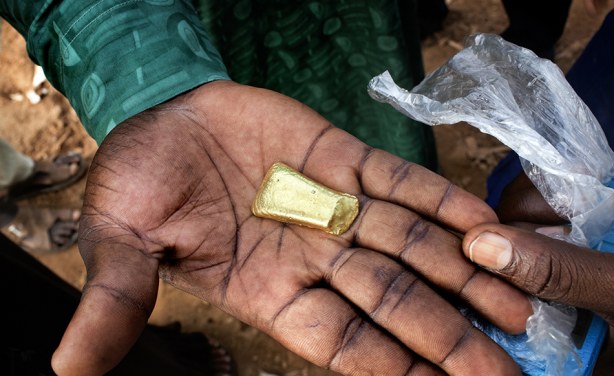Zimbabwe's mining industry posted a mixed performance in 2025, with gold production surging while key minerals such as platinum, lithium, and nickel recorded significant declines, even as sector leaders advocate for value addition and sustainability to secure long-term growth.
According to the latest Smart Mining Sector report and remarks by Chamber of Mines president John Musekiwa at last week's MineEntra Expo in Bulawayo, gold output rose by 44 percent, reinforcing its status as the backbone of Zimbabwe's mineral exports. Coal production also saw modest growth of 4 percent, supported by fresh investments and rising regional energy demand.
However, the report highlighted steep declines in other minerals, with platinum falling 7 percent, palladium 8 percent, rhodium 2 percent, lithium 45 percent, and nickel 17 percent. These uneven trends led the government to revise its overall mining growth forecast from 5.6 percent to 2.9 percent. Despite the declines, export earnings jumped 28 percent to US$3.2 billion, buoyed by strong gold and diamond sales.
Zimbabwe now contributes approximately 3.5 percent of global gold output, maintaining its position as one of Africa's key producers despite domestic challenges such as power shortages, high operating costs, and smuggling. Musekiwa emphasized the sector's critical role in national development, noting that mining accounts for 14.5 percent of GDP and 76 percent of total export earnings. He stressed that future growth depends on beneficiation, local content, and technological innovation.
"Industry players are now working towards establishing refining capacity, and despite temporary price pressures on some metals, the medium- to long-term prospects remain positive," Musekiwa said. "Beneficiation across gold, lithium, PGMs, ferrochrome, and coal will be key to industrial transformation."
He also praised the Smart Mining Programme, which employs automation and digital tracking to enhance transparency and efficiency in mineral production. The Chamber supports government efforts to integrate technology-driven solutions that reduce leakages and promote accountability.
"The adoption of smart mining systems aligns with our sustainability agenda and ensures that the value created in mining is widely shared," Musekiwa said, noting that companies are increasingly investing in solar power plants to supplement grid electricity. The Chamber has also rolled out a voluntary ESG framework based on the Global Reporting Initiative to guide responsible mining practices.
Analysts warn that the sector's uneven growth highlights the urgent need for policy consistency, reliable energy supply, and stable investment conditions. "Zimbabwe's mining future depends not just on extracting minerals," Musekiwa concluded, "but on transforming them into opportunities that power inclusive, sustainable growth."
- zimlive
 OK Zimbabwe posts US$17,8 million loss
OK Zimbabwe posts US$17,8 million loss  Hichilema meets Chivayo
Hichilema meets Chivayo  Millions celebrate Diwali festival in India
Millions celebrate Diwali festival in India  Econet Zimbabwe to delist from ZSE
Econet Zimbabwe to delist from ZSE  Gold edges up as traders await guidance
Gold edges up as traders await guidance  Mnangagwa fires Chitando, appoints Polite Kambamura
Mnangagwa fires Chitando, appoints Polite Kambamura  Young Investment Professional (YIP) Graduate Programme 2019
Young Investment Professional (YIP) Graduate Programme 2019 











 Young Investment Professional (YIP) Graduate Programme 2019
Young Investment Professional (YIP) Graduate Programme 2019
Editor's Pick